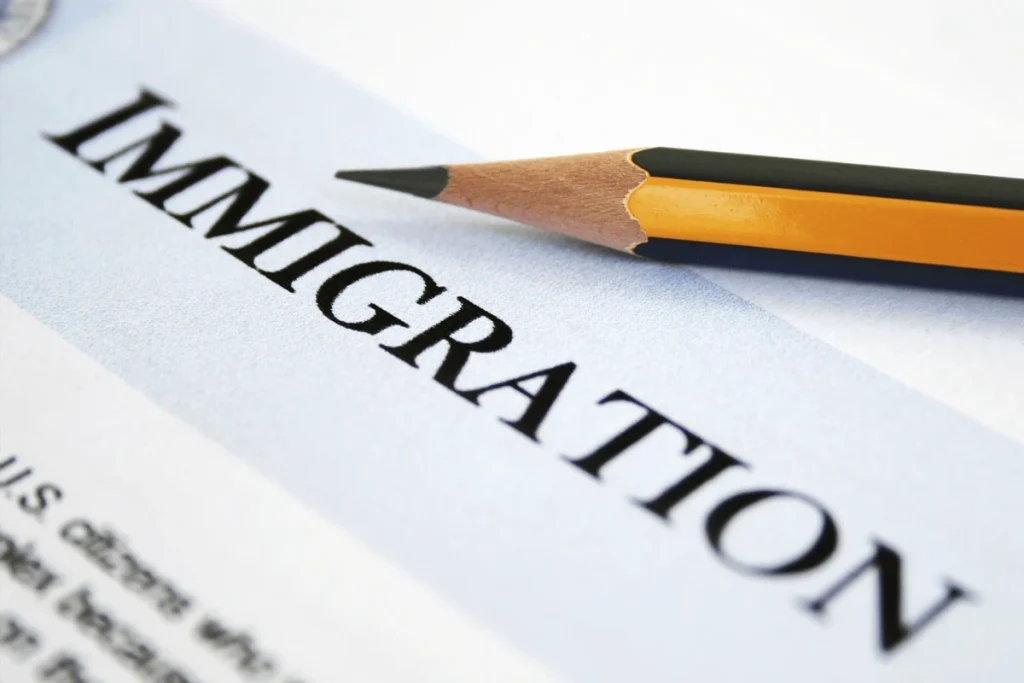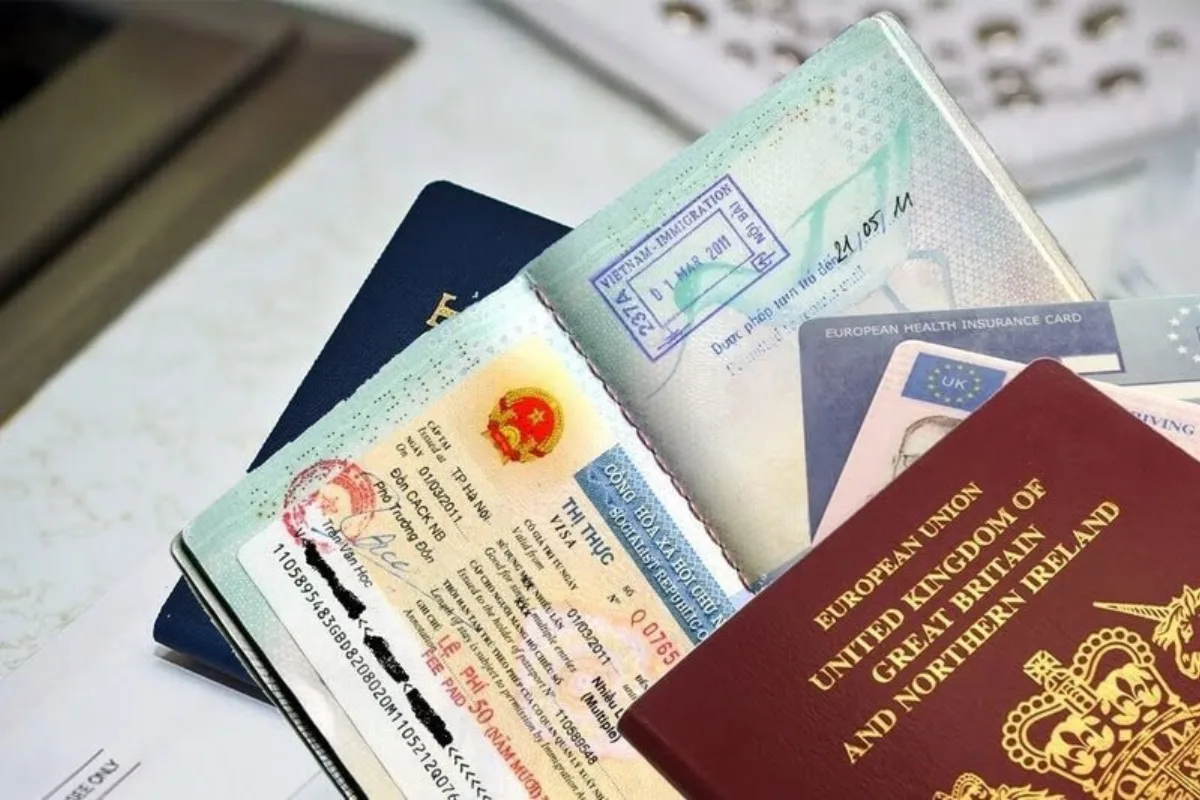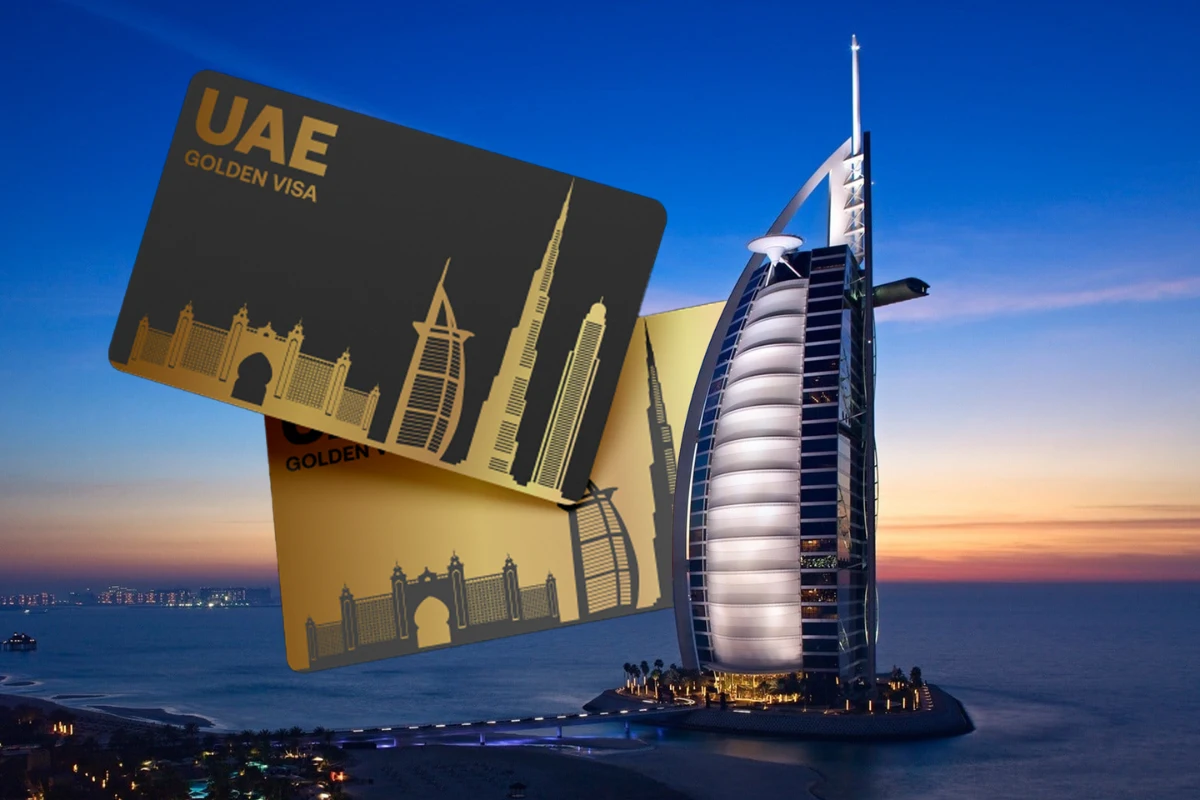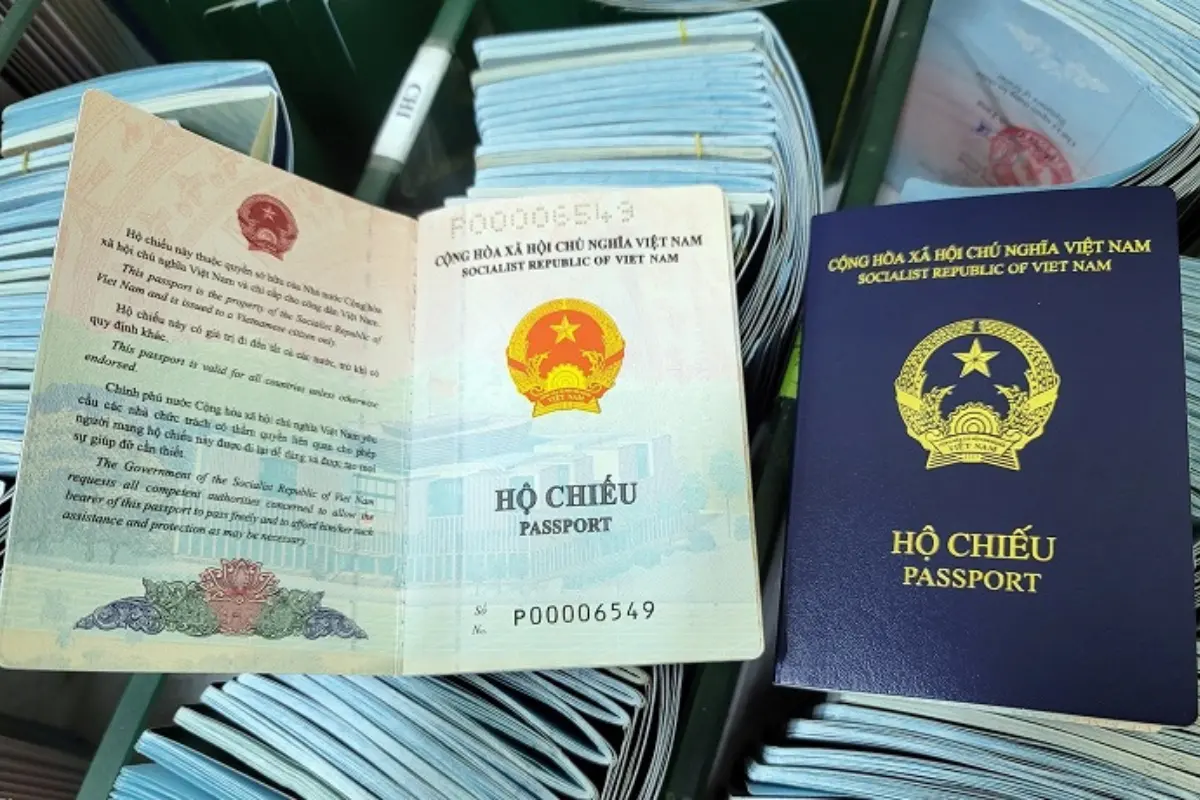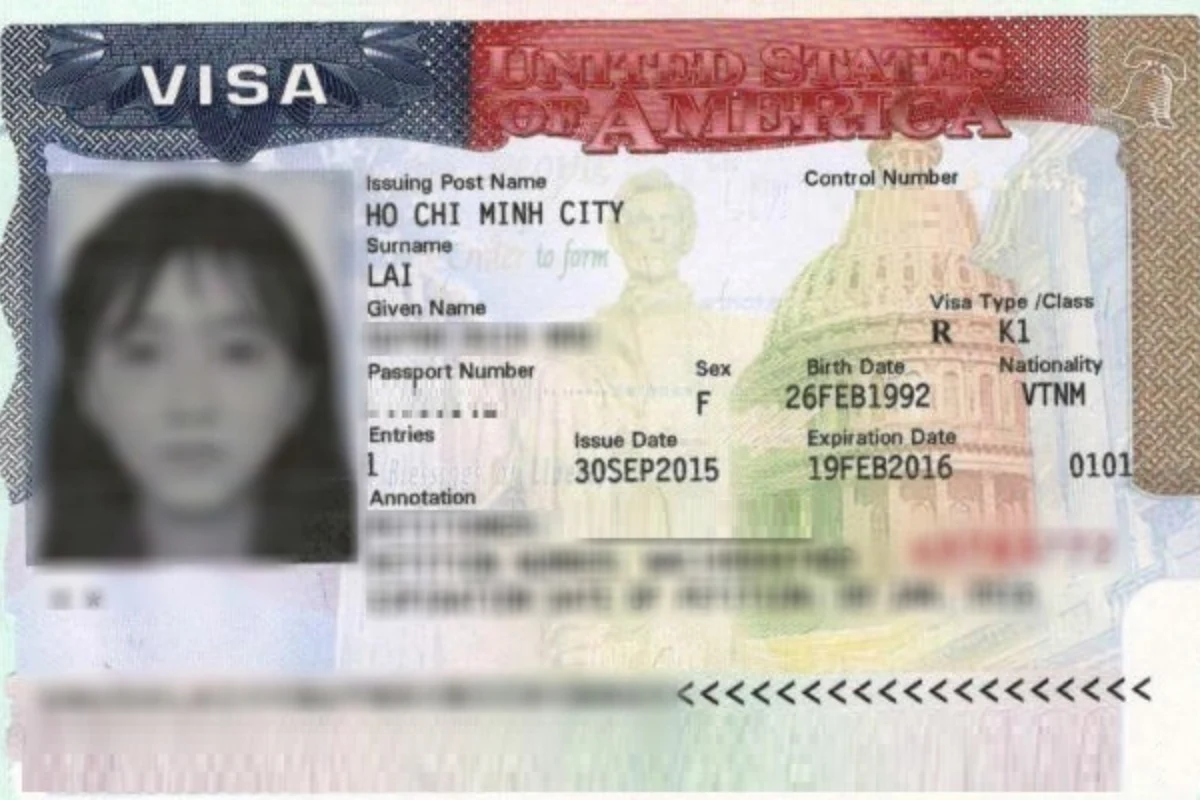When it comes to moving abroad, many people often think of a tourist visa because of its simplicity and short-term nature. However, for those who wish to live, study, or work long-term, an immigrant visa is the real goal to pursue. This type of visa allows foreigners to reside permanently, opening up opportunities to become permanent residents and even citizens.
Overview of immigrant visas
The most distinct difference between an immigrant visa and a tourist visa or other temporary visas is stability. While a tourist visa only allows you to stay for a short period and does not permit official employment, an immigrant visa grants the right to work, study, and sponsor family members. It is often tied to significant social benefits: access to healthcare, education, and welfare programs similar to those available to local citizens.
Therefore, applying for an immigrant visa is not just an administrative procedure but also a turning point in life, shaping the future direction of an individual or family. Careful preparation from the beginning, with the support of professional agencies such as iVISA, makes the process smoother and minimizes the risk of application rejection.
Basic benefits of holding an immigrant visa:
- Legal employment and access to labor rights.
- Education with preferential tuition fees (in many countries) and access to educational benefits.
- Family sponsorship (spouse, dependent children; depending on the country).
- Access to social welfare and healthcare services (according to national laws).
- Pathway to permanent residency/citizenship after meeting residency requirements.
Popular Types of Immigrant Visas
Today, immigrant visas come in many forms, designed to suit different groups of needs. One of the most common pathways is family reunification. Those who have relatives who are already citizens or permanent residents abroad may be sponsored, provided they can prove the authenticity of the relationship and meet basic financial requirements.
In parallel, the work and skilled migration stream is intended for individuals with expertise, experience, and language proficiency. Countries such as Canada and Australia apply a points-based system, prioritizing occupations in shortage. For international students, the path to permanent residency often starts with studying, followed by obtaining a work permit, and gradually transitioning to a skilled migration visa. This has become an increasingly popular route among young Vietnamese as it not only facilitates integration but also increases long-term job opportunities.
Another group is the investment visa, highlighted by programs such as the U.S. EB-5 or the Golden Visa in Europe and Dubai. As long as the capital requirements are met and the source of funds is proven to be legal, investors can quickly gain long-term residency rights. Additionally, there are special categories for talents, startup entrepreneurs, or individuals with outstanding contributions in fields such as science, arts, or sports.
Overall, each visa type follows a different pathway—whether financial, educational, or skills-based. The key lies in identifying the option that best matches one’s abilities and goals. This is also the step that iVISA carefully advises each client on before beginning the application process.
Immigrant Visa Application Process in Key Countries
Although the immigration process differs from country to country, it generally revolves around three main stages: preparing documents, submitting the application, and completing post-approval procedures.
In the United States, applicants must first select the correct visa category, such as family reunification, skilled migration, or investment. After filling out online forms through the USCIS system, applicants must undergo medical exams, background checks, and provide financial evidence. Canada, on the other hand, is notable for its Express Entry system, where CRS scores are calculated based on age, education, work experience, and language proficiency. A high enough score or a provincial nomination greatly increases the chances of receiving an Invitation to Apply (ITA) for permanent residency.
Typical steps include:
- Choosing the appropriate category: family reunification, skilled migration, investment (U.S.: EB-5, etc.).
- Application assessment: criminal background check, medical examination, proof of finances/skills.
- Completing online forms (U.S.: USCIS/CEAC forms; Canada: Express Entry/Provincial streams).
- Paying fees & booking biometrics appointments.
- Providing additional evidence/medical reports as requested.
- Receiving results & being issued the visa/landing document.
In Australia, the process also follows a points-based system but requires an Expression of Interest (EOI) submission before receiving an official invitation to apply. Japan focuses on residence status for specific occupations or high-skilled professionals, while South Korea clearly categorizes through visas such as F-2, F-5, and F-6.
One of the most noteworthy programs in recent years is Dubai’s (UAE) Golden Visa. It is open to investors, professionals, entrepreneurs, and talented individuals, with a relatively transparent process: preparing a passport, photo, legalized academic certificates, proof of finances or business license, then submitting online via the government portal. Once approved, applicants complete biometrics, undergo a medical check, and receive the Emirates ID—an essential document for long-term residence.
No matter the country, the decisive factor lies in the accuracy and consistency of the application. Even a small error in name transcription or translation can delay the process for months. Therefore, support from professional agencies like iVISA not only saves time but also minimizes the risk of requests for additional documents or outright rejection.
Dubai Immigrant Visa: Basic Guide and Key Notes
Dubai has become a particularly attractive destination for Vietnamese travelers thanks to its open policies and rapid development. The most notable immigrant visa in Dubai is the Golden Visa, which requires applicants to demonstrate financial capacity or real estate investment value. Experts, startup entrepreneurs, and talented individuals in key sectors such as healthcare, technology, and research also have the opportunity to obtain long-term residency.
Required Documents (for reference):
- Passport valid for 6–12 months; standard photo.
- Academic certificates & transcripts legalized by the consulate.
- Financial documents: bank statements, investment/real estate ownership papers.
- Employment contract/Job offer letter/Business license (if applicable).
- Health insurance in the UAE (recommended).
A practical tip is to translate and notarize all documents that are not in English or Arabic. In addition, always keep track of your application status online to promptly provide additional documents if requested. With the support of iVISA, applicants will have their documents standardized, minimizing common mistakes, while also receiving close follow-up to avoid missing any critical milestones.
Countries Where Vietnamese Can More Easily Obtain Immigrant Visas
Not every country sets extremely high requirements for immigrants, and for Vietnamese citizens, some destinations are considered more “accessible.” Canada tops the list with its transparent Express Entry system, offering strong opportunities for those proficient in foreign languages and working in labor-shortage sectors. Australia follows closely, with a well-defined skilled migration program and multiple states eager to welcome professionals.
Singapore is an attractive option with its dynamic work environment, though long-term residency here involves stricter screening. Taiwan, on the other hand, is more approachable through labor or small business visas, making it suitable for those who do not want to commit too much upfront investment.
Each country has its own advantages and disadvantages, from language and financial requirements to the possibility of family sponsorship. Therefore, choosing a destination should be based on personal goals: those focusing on career development may prioritize Canada or Australia, while those seeking quick investment opportunities might consider Dubai. This is also why many applicants turn to iVISA for a comprehensive assessment before deciding on the most suitable pathway.
Preparing Documents and Choosing a Reliable Service
An immigration application is usually extensive and requires a wide range of documents, from passports, photos, criminal background checks, and medical reports to academic qualifications, language certificates, and financial records. Depending on the visa category, you may also need to provide an employment contract, marriage documents, or proof of investment.
For countries like Taiwan and China, completing application forms and legalizing documents is a crucial step. All materials must be translated into Chinese and fully notarized, followed by scheduling an appointment to submit the application at the relevant authority. Even a missing translation or inconsistent transliteration can result in the application being returned.
Because of this complexity, many people choose to work with service companies. However, not all providers are reliable. A trustworthy company must have a transparent contract, a clear error-checking process, and provide support from translation all the way through to the final result. iVISA is a prime example—not only handling paperwork but also accompanying clients throughout the entire journey, helping maximize the success rate of applications.
Frequently Asked Questions
Can immigrant visa holders work and study?
Yes. Most categories allow legal employment and access to educational benefits similar to those of local citizens.
Can family members be sponsored?
With an immigrant visa, spouses and dependent children are almost always eligible for sponsorship. Some countries also extend this to parents, provided the sponsor meets financial requirements.
How long does the processing take?
On average, from six months to a year and a half, depending on the country and visa category. Investment programs are usually faster, while family reunification visas may take longer due to the large volume of applications.
Summary and Recommendations
It can be said that an immigrant visa is the gateway to a new life, where you and your family have the right to work, study, and enjoy social benefits in your chosen country. Completely different from a tourist visa, this type requires thorough preparation in terms of time, finances, and documentation.
If you are considering immigration, the most important advice is to start early, define your goals clearly, choose the right country, and invest in the quality of your application. The better the preparation, the higher the chance of approval.
To make the journey less stressful, finding a reliable partner like iVISA will give you greater peace of mind. With experience in handling applications for multiple countries, iVISA not only provides the most optimal pathway but also accompanies you fully—from the very first step until you officially set foot in your new home. This is the smart way to turn your plan into reality.

